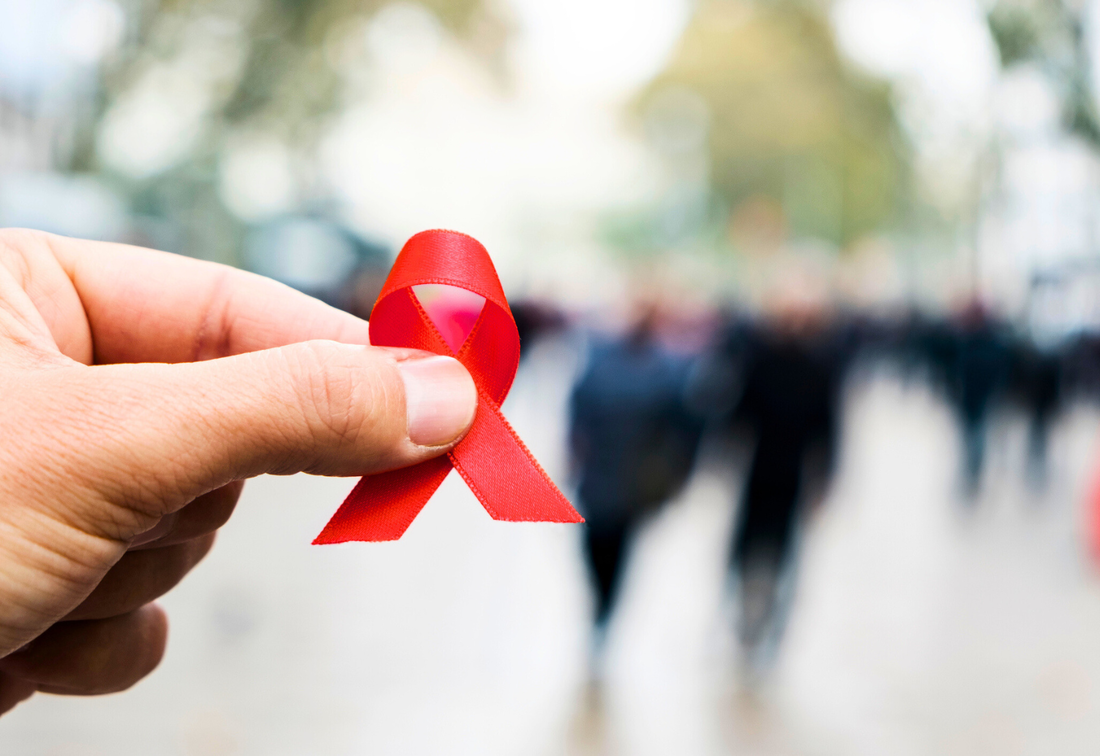HIV-positive patients find new hope with HIV donor kidneys
October 28, 2025
Effective antiretroviral therapy (ART) has revolutionized the prognosis for patients with HIV, dramatically increasing life expectancy to levels comparable to those without HIV infection. This medical advancement has also fundamentally transformed the epidemiology of HIV-related kidney diseases since the first reports in 1984.
"In the very early years, HIV-associated nephropathy (HIVAN) was the predominant etiology—an aggressive form of kidney disease with a high rate of progression to end-stage kidney disease (ESKD)," explains Dr Sunita Bavanandan, Senior Consultant Nephrologist at KPJ Tawakkal, Columbia Asia Setapak and HKL during her talk ‘Future of patients with HIV in dialysis and transplant’, at the National Kidney Foundation’s 18th Annual Dialysis Conference. The landscape has shifted remarkably, with HIVAN prevalence decreasing from 80% in 1997 to just 35% in 2004. Today's HIV patients face a broader spectrum of kidney diseases, including IgA nephropathy (an immune-complex-related kidney disease), diabetic nephropathy, and arterionephrosclerosis. Acute interstitial nephritis, responsible for approximately 8% of cases, presents additional challenges, with causes ranging from infections and HIV itself to medication-related factors. The modern face of kidney disease in HIV patients Contemporary HIV-related kidney diseases generally present as more indolent and less aggressive conditions compared to the early HIVAN-dominant era. Approximately 10-30% of patients with HIV will develop chronic kidney disease (CKD), encompassing various pathologies including rheumatoid disease, tubular interstitial diseases, and vascular diseases. The epidemiological data reveals that in 2004, HIV-infected individuals comprised 1.5% of end-stage kidney disease patients in America. Modeled projections from that time predicted that by 2020, more than 10,000 HIV-infected individuals would be living with ESKD—a significant increase from fewer than 200 cases in 1990. Unfortunately, the United States Renal Data System (USRDS) no longer collects data on HIV infection as a comorbid condition in incident ESRD patients, limiting nationally representative estimates and significantly underestimating the true burden of ESKD in this population. Dialysis challenges and limitations for HIV patients In Malaysia, significant challenges persist in providing adequate dialysis access for HIV patients. Due to limited availability of HIV slots in hemodialysis units, most patients are advised to choose peritoneal dialysis as their preferred modality. For those undergoing hemodialysis, early creation of arteriovenous fistula is recommended to ensure optimal vascular access. Importantly, the Centers for Disease Control (CDC) does not recommend routine isolation or dedicated machines for people with HIV undergoing hemodialysis, citing the low risk of patient-to-patient and patient-to-staff transmission. Despite these guidelines, access barriers remain significant for this vulnerable population. The survival disparity on dialysis Despite advances in HIV treatment, cohort studies consistently show that the survival of HIV-infected patients with end-stage kidney disease on dialysis remains lower than that of matched HIV-negative patients. According to Trullas et al. in the JAIDS Journal of Acquired Immune Deficiency Syndromes (2011), the five-year survival rate for HIV-positive dialysis patients is only 63%, compared to 94% for HIV-negative patients on dialysis. This significant survival disparity has motivated recent efforts to optimize outcomes for HIV-infected dialysis patients, with a particular focus on expanding access to kidney transplantation for this population. The promise of transplantation for HIV-positive patients A landmark study in the United States demonstrated that HIV-positive patients with end-stage kidney failure could safely undergo kidney transplantation, provided they meet specific criteria: controlled HIV infection (undetectable viral load), CD4 counts above 200, and stable ART regimen for six months or more. The outcomes were remarkable, with patient survival rates at one and three years reaching 95% and 88%, respectively—comparable to those seen in non-HIV-infected transplant recipients. More recently, a study from the NIH has shown the survival benefit of immunosuppressants in HIV-positive patients. Using registry data from 1,400 HIV-infected kidney transplantation recipients, researchers found that while there is a heightened mortality risk in the first month post-transplant, the hazard ratio of mortality quickly drops below one, indicating a reduced risk of death. Addressing early concerns about transplantation in HIV patients Early concerns about transplanting HIV-positive patients have been effectively addressed through research. Contrary to initial fears, immunosuppression does not adversely affect HIV infection as long as patients are maintained on highly active ART. Additionally, the incidence of opportunistic infections is not greater than in HIV-negative transplant recipients, alleviating another major concern. These findings have paved the way for a more inclusive approach to kidney transplantation in HIV-positive patients, opening new possibilities for improving outcomes in this population. The groundbreaking South African experience The successful implementation of transplantation for appropriate HIV-positive candidates has been historically limited by organ shortage. In South Africa, where HIV prevalence reaches 17.8% and annual HIV deaths remain high, the limited dialysis access for HIV-positive patients motivated innovative approaches. In a groundbreaking study, two deceased donors who were HIV-positive but not on ART, had no serious opportunistic infections or cancers, and showed no evidence of HIV-related kidney disease on biopsy, provided kidneys for HIV-positive recipients. The results were excellent: 100% patient survival, excellent graft function, no evidence of rejection, and maintenance of HIV control. The HOPE Act: Transforming transplantation policy in the United States The South African experience inspired significant policy developments in the United States. The HIV Organ Policy Equity (HOPE) Act, signed by President Obama in 2013, reversed a previous ban on HIV-positive donors giving organs to HIV-positive recipients. This change was partly motivated by the worsening opioid epidemic in the US, which increased the number of potential HIV-positive deceased donors. Statistics show that the national number of donors where drug intoxication was reported as the mechanism of death rose from 4.3% in 2010 to 13.4% in 2017. By the end of 2021, the HOPE Act was amended to allow these transplants outside of research conditions, further expanding access to this life-saving procedure. The dramatic impact on wait times A study published in a transplant journal titled 'Wait time advantage for transplant candidates with HIV who accept kidneys from donors with HIV under the HOPE Act' revealed significant benefits. The waiting time for transplant candidates who accept kidneys from HIV-positive donors under the HOPE Act is substantially reduced. Notably, 70% of patients who receive transplants under HOPE are transplanted within 4.5 years of starting dialysis, compared to only 43% of non-HOPE candidates. The median wait time is dramatically shortened to 10.3 months compared to 60.8 months for other candidates. Current criteria for HIV-positive to HIV-positive transplantation Current guidelines, as suggested by Muller et al. (2021) and Boyarsky et al. (2021), outline specific criteria for both HIV-positive recipients and donors. For recipients, HIV-positive patients should be selected according to standard criteria similar to HIV-negative transplant recipients, with additional HIV-specific recommendations: patients should have undetectable viral loads, be on a stable ART regimen for at least three months before transplantation, and ideally have CD4 counts above 200 cells/mm³. For donors, the criteria follow those for HIV-negative donors, with additional considerations. US National criteria state that living donors should have well-controlled HIV (CD4+ T-cell count above 500 for six months before donation, undetectable viral load, and no evidence of opportunistic infections). Additional attention should be paid to the risk of donor-derived infections like latent TB and strongyloidiasis in endemic areas, as well as screening for STDs such as syphilis, West Nile Virus, and Chagas parasitic disease. Best practices in managing HIV-positive transplant recipients A multidisciplinary support team is essential for successful transplantation in HIV-positive patients. This team should include nephrologists, surgeons, infectious disease physicians, transplant nurses, pharmacists, and social workers. Key management strategies include maintaining HIV viral suppression by selecting or maintaining an ART regimen that minimizes drug-drug interactions, implementing therapeutic drug monitoring for immunosuppressive drugs, and monitoring liver and kidney function. Healthcare providers should also consider pill burden by using fixed-dose combination tablets or single-tablet regimens to enhance adherence, address hepatitis B and C co-infections with appropriate referrals, and protect against post-transplant infectious complications with updated vaccinations and antimicrobial prophylaxis. Special considerations for opportunistic infections and malignancies While opportunistic infections (OIs) are no longer an absolute exclusion criterion for HIV-positive transplant candidates, certain malignancies require careful consideration. Patients with Kaposi's sarcoma, central nervous system (CNS) lymphoma, or progressive multifocal leukoencephalopathy should be evaluated on a case-by-case basis, with some centers declining transplantation for these conditions. The future of HIV-positive transplantation: CCR5 inhibitors New research is exploring the potential of antiviral agents like Maraviroc, a CC Chemokine receptor 5 (CCR5) inhibitor, in improving transplant outcomes for HIV-positive patients. The CCR5 receptor serves as a coreceptor for HIV-1 entry into cells. Studies of kidney transplant recipients with known CCR5 genotypes have shown promising results: among 1,227 kidney transplant recipients, 21 patients who were homozygous for the CCR5 mutation demonstrated better kidney survival with the addition of CCR5 inhibitors. While the exact mechanism remains unclear, a clinical trial is currently in progress to determine whether Maraviroc could be a superior agent for HIV-positive transplant recipients, representing the cutting edge of transplantation science for HIV patients. |
EXPLORE FURTHER
Public health depends on human rightsThe key to ending HIV/AIDS
|
Early treatment for HIV halts brain damage, improves life expectancy |




